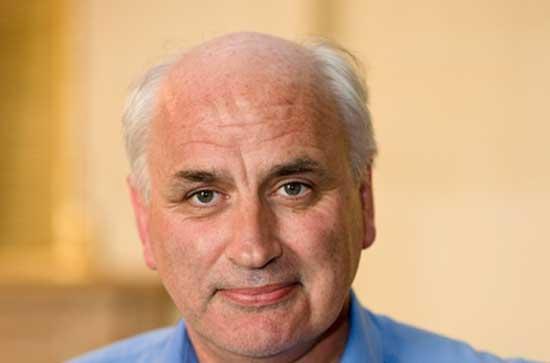University can play leading role in overcoming socio-technical challenges
Professor Brian Donnellan of the Innovation Value Institute (IVI) took on two new roles in January 2017 - Vice-President and Dean of International Affairs. Three months into his role, we asked him a few questions.

Brian, you are known for your strong international outlook. What are some of your aims as Vice-President and Dean of International Affairs?
Most of my career to-date, in both industry and academia, has been concerned with addressing global challenges. Maynooth University has a very strong history of achievements with respect to International Students – as evidenced by our recent award of 1st place overall in Ireland in the International Student Barometer which is a global survey of international students’ university experience. My aim will be to further develop our growing international reputation for excellence in academic teaching and learning, combined with a supportive environment for students on campus and an active research environment – to enhance the university’s standing internationally.
You have been active in the Innovation Value Institute for many years. What role do you see the IVI playing in the overall development of Maynooth University today?
The IVI is a good example of what’s possible when a university plays a proactive role in creating and nurturing a global community of innovative companies to address an important challenge. In this case, many organizations around the world were looking for a structured and systematic approach to identify the innovative capabilities they need, and a way to assess their strengths and weaknesses and the IVI provided clear pathways to improve organizational performance. As IVI’s range of engagements with industry and academia continues to broaden and deepen, it’s importance to the university will continue to grow and it will be a showcase for Maynooth University’s ability to host an institute comprised of global companies working together to solve complex problems emerging from today’s very dynamic business environment.
At the time of this interview, you’re attending an “Internet-of-Things” (IoT) conference in Japan. When you look at Ireland, what are we doing well and where are we falling behind?
Ireland is ideally placed to lead in IoT because it is a small, but highly technologically advanced nation, with the perfect collaborative environment for the development of the IoT ecosystem to thrive. Indeed, Ireland has become the natural choice for companies looking to develop their IoT products and services. We are home to numerous IoT Industrial test beds – e.g. Ignite from Intel, Infinite from Dell EMC, and many more. While we continue to make great strides in tackling the technological challenges associated with IoT, I think more focus will be needed on the socio-technical challenges such as privacy/security, ethics, governance, business models and how IoT can be deployed in such a way as to benefit all sectors of our society. Given Maynooth University’s ethos and research capability, I think we are uniquely placed to play a leading role in overcoming these types of challenges.
You are a person of varied interests. What do you like to read when you’re relaxing?
I usually have a couple of books on the go. At the moment I am re-reading Patrick O’Brian’s series of nautical historical novels. I read them years ago and am enjoying them even more now. I’ve just started “Silence” a novel by a Japanese writer that was released last year as a film directed by Martin Scorsese. Another favourite is “Stoner” by John Williams.
